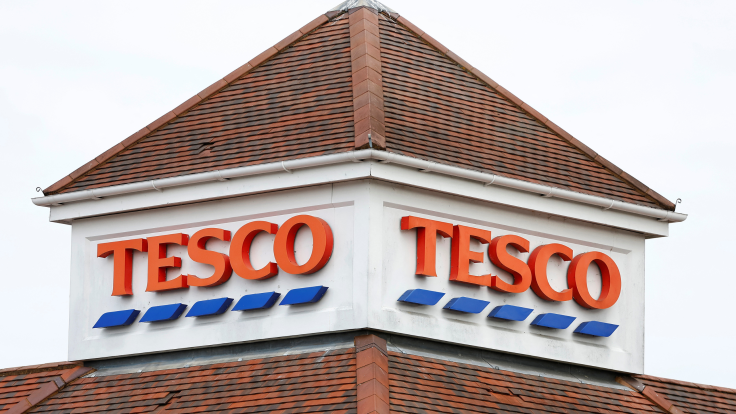Tesco Staff Still Paid Lower Than Minimum Wage As Supermarket Struggles
Tesco's pay rise delay is not illegal according to HMRC rules

Employees at British supermarket, Tesco, have revealed their frustration at the delay in the company handing them a promised pay rise worth 9.1 per cent.
This comes after the nationwide retailer previously announced that it will be increasing the minimum pay amount for its store staff from £11.02 hourly to £12.02 in April. For London staff, the pay rate will increase to £13.15 per hour.
The pledge comes amidst the National Living Wage for workers in the UK increasing from £10.42 to £11.44 on 1st April, whilst the age requirement to be eligible will drop from 23 to 21.
However, whilst Tesco's pledge to reward its shop workers with higher pay is appreciated, it will only come into effect on the 28th April. This means that 220,000 staff will spend nearly four full weeks being paid below the new living wage.
This is despite Tesco being a major player in the retailer market and having forecasted profit estimations of £2.75 billion this year.
The implementation of Tesco's new wage coming 27 days after April begins will lead to Tesco saving over £17 million in that timeframe. Per hour, the delayed pledge will save the retailer 42p.
Whilst this revelation has left some Tesco shop staff unhappy, it is not against the law and the pay rise delay is allowed to occur under current HMRC regulations. Companies can apply minimum pay rates from when the "pay reference period" begins on either 1st April or after that date.
One Tesco worker told The Mirror that what their employer has done "surely must be immoral" even if the delay is legally allowed to be carried out. Another staff member described the overall feeling amongst the workers to The Guardian, commenting: "We are all extremely angry at this especially as this was approved by our union."
The Usdaw union played a key role in securing the new pay rise at Tesco and were keen themselves for the retailer's minimum wage increase to be in place before 28th April. However, the HMRC rules were in Tesco's favour and allowed the company to go against Usdaw's wishes.
According to the National Officer of Usdaw, Daniel Adams, the union "negotiated a significant pay rise that makes Tesco workers amongst the highest paid in the sector."
Adams then went on to explain why the date for the pay rise was pushed back to the end of April, saying: "While the union will always seek implementation on the pay anniversary date, which was 2 April last year, the outcome of these negotiations meant that the date was delayed until later in April to allow for the highest investment in pay possible."
Usdaw revealed that Tesco's pay rise is among the supermarket's biggest ever pledges, with more than £300 million being poured in from the company to increase its staff minimum pay. Also, in the past two years, the hourly pay has risen by 26 per cent for workers at the retailer.
Other perks which Tesco have offered to its staff include its paternity leave period extending by a further six weeks and the employee discount allowance increasing from £1500 to £2000 annually.
Tesco are not the only supermarket chain to react to the nation's newest minimum wage increase, as Asda will increase its pay to £12.04 hourly, whilst Sainsbury, Aldi, Lidl, Co-op Food and Marks & Spencer will go up to £12.
Aldi's pay rise came into effect in February and the company has even announced that it will increase its pay for a second time on 1st June to £12.40. Its staff in London and within the M25 will receive a pay rise from £13.55 to £13.65.
Sainsbury increased pay was put in place last month and the company will be among the supermarkets to raise hourly pay to £13.15 in London.
John Lewis and Waitrose will both raise its minimum hourly pay to £11.55 next month. For their staff in London, they will earn £12.89 per hour.
All major supermarket chains in the UK are evidently aware of the battle they all face to retain store staff so the topic of increased hourly pay could continue for the foreseeable future. Aldi's additional pay rise from June suggests that the retailers want to continue having an advantage over their competitors and higher pay will likely achieve that.
© Copyright IBTimes 2025. All rights reserved.






















